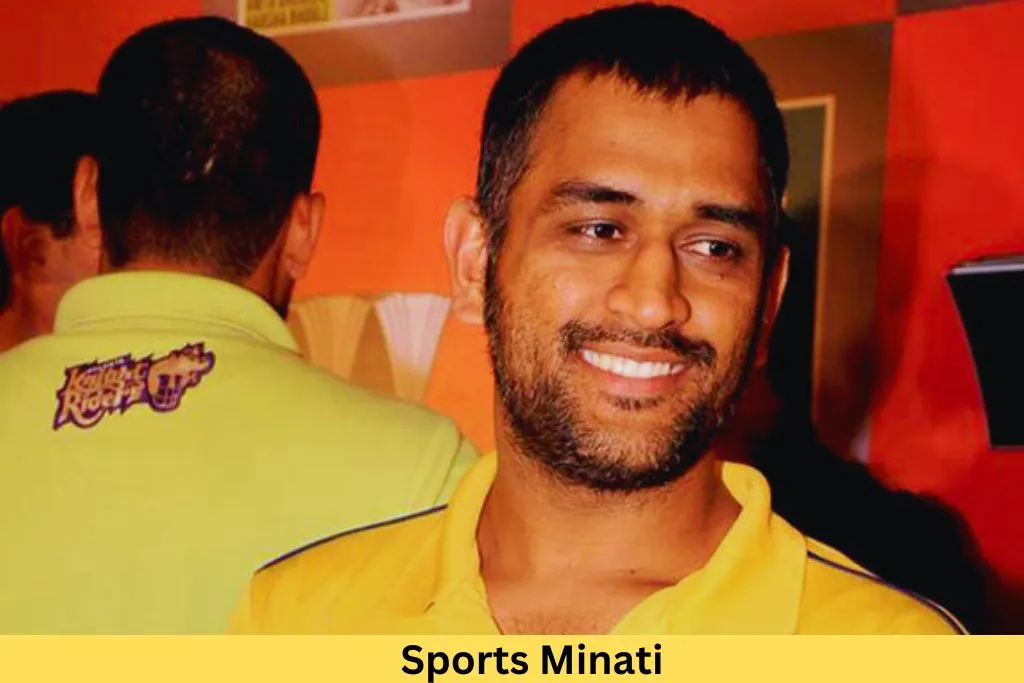
Mahendra Singh Dhoni
born 7 July 1981) is an Indian professional cricketer, known for his role as a right-handed batter and wicket-keeper. He is widely regarded as one of the most prolific wicket-keeper-batsmen and captains in cricket history. Dhoni captained the Indian cricket team in limited-overs formats from 2007 to 2017 and in Test cricket from 2008 to 2014. He holds the record for captaining the most international matches and is the most successful Indian captain, having led India to victories in the 2007 ICC World Twenty20, the 2011 Cricket World Cup, and the 2013 ICC Champions Trophy. He also led India to Asia Cup wins in 2010, 2016, and was part of the title-winning squad in 2018.
Born in Ranchi, Dhoni made his first-class debut for Bihar in 1999. He debuted for the Indian cricket team on 23 December 2004 in an ODI against Bangladesh and played his first Test a year later against Sri Lanka. In 2007, he became the ODI captain, taking over in all formats by 2008. Dhoni retired from Test cricket in 2014 but continued playing limited-overs cricket until 2019. He scored 17,266 runs in international cricket, including over 10,000 runs in ODIs with an average above 50.
In the Indian Premier League (IPL), Dhoni plays for Chennai Super Kings (CSK), leading them to ten finals and winning five times (2010, 2011, 2018, 2021, and 2023). He also led CSK to two Champions League T20 titles in 2010 and 2014. Dhoni is among the few batsmen to score over 5,000 runs in the IPL and was the first wicket-keeper to achieve this milestone.
Dhoni has received numerous honors, including India’s highest sports honor, the Major Dhyan Chand Khel Ratna Award, in 2008, the Padma Shri in 2009, and the Padma Bhushan in 2018. In 2011, he was awarded the honorary rank of Lieutenant Colonel in the Parachute Regiment of the Indian Territorial Army. Dhoni is one of the most popular cricketers worldwide.
Early Life
Dhoni was born on 7 July 1981 in Ranchi, Bihar (now in Jharkhand) to Pan Singh and Devaki Devi. His family hails from Lwali village in Uttar Pradesh (now Uttarakhand). He was the youngest of three children. His family surname “Dhauni” became “Dhoni” due to a spelling mistake in his school certificates, which was never rectified.
Dhoni attended DAV Jawahar Vidya Mandir, where he initially played football as a goalkeeper before switching to cricket on his coach Keshav Banerjee’s suggestion. From 2001 to 2003, Dhoni worked as a Travelling Ticket Examiner (TTE) at Kharagpur under South Eastern Railway.
Early Career
Dhoni played as a wicket keeper for Commando Cricket Club from 1995 to 1998 and for Central Coal Fields Limited (CCL) in 1998. His performances in club cricket led to his selection for the Vinoo Mankad Trophy under-16 championship in 1997/98. In the 1998–99 season, he played for Bihar U-19 in the Cooch Behar Trophy, scoring 176 runs in 5 matches. In the 1999–2000 season, he scored 488 runs in nine matches with five fifties, 17 catches, and seven stumpings.
Dhoni made his Ranji Trophy debut for Bihar against Assam in the 1999–2000 season, scoring 68 runs in the second innings. He scored his maiden first-class century against Bengal in the 2000–01 season. Dhoni’s performances improved in the 2002–03 Ranji Trophy, playing for Jharkhand, and in the Deodhar Trophy, where he gained recognition for his lower-order contributions and hard-hitting batting style. In the 2003/04 season, he scored a century (128*) against Assam in the Ranji ODI tournament and was part of the East Zone squad that won the Deodhar Trophy, scoring 244 runs in four matches.
Dhoni’s talent was recognized through the BCCI’s small-town talent-spotting initiative TRDW. In 2004, he was picked for the India A squad for a tour of Zimbabwe and Kenya. He impressed with his wicket-keeping and batting, scoring 362 runs in six innings at an average of 72.40, including back-to-back centuries, in a tri-nation tournament involving Kenya, India A, and Pakistan A.
Debut and Early Years
ODI Debut
In the early 2000s, the Indian ODI team relied on wicket-keepers like Rahul Dravid, Parthiv Patel, and Dinesh Karthik. Dhoni’s impressive performances for the India A squad earned him a spot in the ODI squad for the Bangladesh tour in December 2004. He made his debut in the first match of the series but was run out for a duck. Despite the setback, Dhoni was included in the subsequent ODI series against Pakistan. In the second match of this series, he scored 148 runs off 123 deliveries, surpassing the record for the highest score by an Indian wicket-keeper.
Breakthrough Performance
In the Sri Lankan bilateral ODI series in October-November 2005, Dhoni was promoted to No. 3 in the batting order in the third ODI at Jaipur. He scored an unbeaten 183 runs off 145 balls, setting a new record for the highest score by an Indian wicket-keeper. This innings was praised for its aggressive yet controlled style and remained the highest individual score in ODI cricket during a run chase until broken by Shane Watson seven years later. Dhoni ended the series with the highest aggregate of 346 runs and was awarded the Man of the Series.
Becoming a Regular
Dhoni became a regular in the Indian side after the home series against South Africa in November 2005. In December 2005, he was awarded a “B” grade contract by the BCCI. He made his Test debut the same month against Sri Lanka at Chennai, scoring 30 runs in a rain-affected match. In the subsequent tour of Pakistan, he scored his maiden Test century in Faisalabad.
Challenges and Criticisms
Dhoni faced criticism for his wicket-keeping during the home series against England in March 2006 due to multiple missed catches and stumpings. Despite these challenges, he scored 177 runs in the ODI series that followed. In the DLF Cup 2006-07, India failed to qualify for the finals, and in the 2006 ICC Champions Trophy, India did not make it to the knockout stage.
2007 World T20 and Captaincy
Rise as Captain
India recorded victories over West Indies and Sri Lanka in early 2007, with Dhoni averaging over 100 in both series. However, the 2007 Cricket World Cup was a major disappointment as India crashed out in the group stage, with Dhoni scoring only 29 runs in the tournament. Following this, Dhoni’s house in Ranchi was vandalized, and security was tightened for his family.
Leading India to Success
Dhoni was named vice-captain of the ODI team for the 2007 Future Cup and was awarded an ‘A’ grade contract by BCCI in June 2007. He captained India in the inaugural World Twenty20 in September 2007, leading the team to victory after defeating Pakistan in the final. Following this, Dhoni was appointed captain of the Indian team in all formats.
Record-Breaking Performances
On 2 September 2007, Dhoni equaled Adam Gilchrist’s international record for most dismissals in an innings in ODI by effecting six dismissals against England. He was named captain and wicket-keeper of the ICC ODI Team of the Year in 2006 and led India to several victories, including the 2008-09 series against Sri Lanka, where he scored two centuries.
2011 World Cup Win and Later
World Cup Glory
Dhoni led India to its second ODI World Cup win in 2011, scoring an unbeaten 91 in the final against Sri Lanka. In December 2012, he top-scored in all three matches of the bilateral series against Pakistan. Dhoni also led India to victory in the 2013 ICC Champions Trophy, becoming the only captain to win all ICC limited-overs trophies.
Continued Success and Records
Dhoni became the second Indian batsman after Sachin Tendulkar to aggregate more than a thousand runs in ODIs against Australia. Despite injuries, he played a crucial role in various series, including a tri-nation tournament in West Indies in 2013 where he was named Man of the Match in the final. Dhoni led India to the 2014 ICC World Twenty20 final and the 2015 Cricket World Cup semi-final.
Test Retirement and 2015 World Cup
Stepping Down
Dhoni retired from Test cricket in December 2014 after the series against Australia. He ended his Test career with several records, including the most stumpings in international cricket. In the 2015 World Cup, Dhoni led India to an unbeaten group stage and a semi-final appearance.
Final Years and Retirement
Transition and Achievements
Dhoni led India to victory in the 2016 Asia Cup and stepped down as captain in January 2017. He scored his tenth ODI century against England and was named in the ‘Team of the Tournament’ at the 2017 ICC Champions Trophy. Dhoni became the first wicket-keeper to effect 100 stumpings in ODIs in August 2017.
Final Performances
In 2018, Dhoni surpassed 10,000 ODI runs and became the first cricketer to lead India in 200 ODIs. He played a key role in India’s series victories and continued to set records in dismissals and stumpings. Dhoni was named in India’s squad for the 2019 Cricket World Cup and played his final ODI in the semi-final loss against New Zealand.
Retirement
Dhoni announced his retirement from international cricket on 15 August 2020, ending a remarkable career as one of the most successful and influential cricketers in history.

